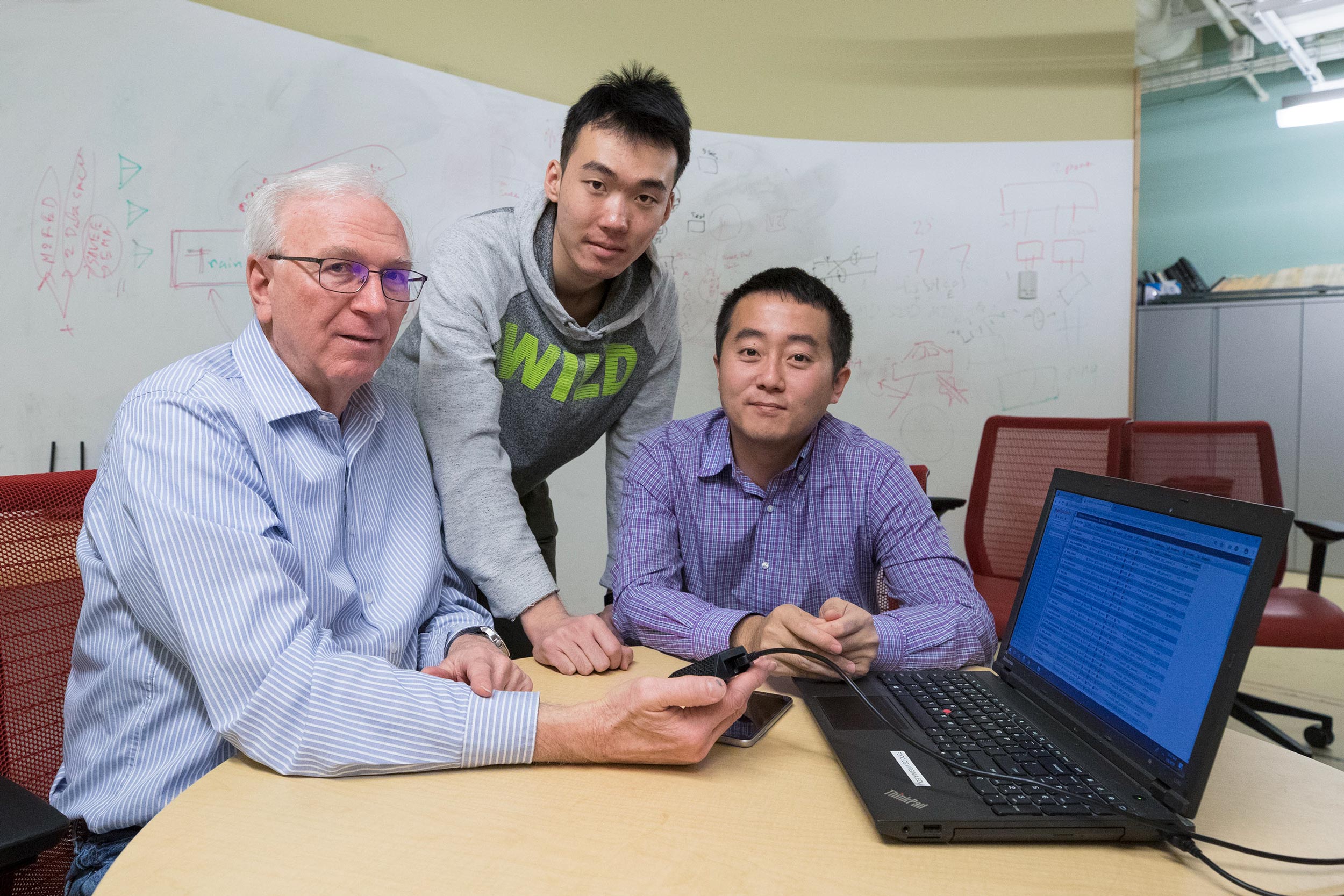More than 80% of people with Alzheimer’s disease and other dementias are cared for at home by family members, usually spouses or partners. These caregivers routinely experience high levels of stress, anxiety and depression while seeing to the needs of their loved ones. Over time, often through years of providing increasingly demanding levels of support, the stress and strains of caregiving can result in health issues for the caregiver.
“Society often focuses on the patient, while overlooking the often acute and long-term needs of the caregiver,” said Jack Stankovic, the BP America Professor of Computer Science at the University of Virginia. “But the well-being of the caregiver is also critically important to the well-being of the person receiving care. It’s a reciprocal relationship.”
Stankovic specializes in developing real-time systems, meaning technologies that adapt and respond to events as they happen. He is using a $735,000 grant from the National Science Foundation to develop a smart healthcare system that will help provide needed support to caregivers in the home, in real-time, when they need it most.
The system, which is early in its development, will monitor stress levels of caregivers, and, when needed, provide a prompt – a text to a smartphone – suggesting ways to settle down, breathe-deeply, take a break, relax, to be mindful of the need for self-care, too.
“Sometimes caregivers get so caught up in the moment, dealing with stressful conditions, that they will forget to take care of themselves,” Stankovic said. “We’re hoping to help make them aware whenever their stress level is rising so they can take a needed break for their own wellbeing.”
Stankovic is director of the UVA engineering school’s Link Lab, which brings together engineers from different disciplines with experts in a range of specialties to solve complex problems using direct applications. He’s also a member of UVA’s Center of Engineering in Medicine program.
The system Stankovic is developing, along with his colleague, computer science assistant professor Hongning Wang, is designed to monitor the voice fluctuations of a caregiver to find indicators of rising stress levels. When the technology determines that changes are occurring – such as measurable and increasing changes in pitch, tone, volume and frequency – the system will send an alert to the caregiver’s smartphone, suggesting ways to slow down and relax a bit. The suggestions are based on the user’s own reported preferences, such as doing yoga, listening to relaxing music, reading or meditating.
“Voice modulation is a very powerful indicator of mood,” Stankovic said. “By measuring changes in the way a caregiver is speaking we can likely determine when mood changes are occurring and the point when a caregiver is perhaps feeling overwhelmed. This is an opportunity to say, ‘OK, you need a break.’”

The technology will use a microphone to detect the user’s voice. The voice sounds will be converted to raw computerized data that will measure fluctuations without recording actual conversations. It will be designed to detect when a caregiver is feeling stressed, sad, angry or upset; and that will trigger the intervention recommendations. The system also will ensure privacy while providing the caregiver with a valuable service – a gentle self-care reminder – like having a confidant who sometimes knows your moods better than you know yourself. The system will factor in the dynamics between caregiver and patient, and will be adaptable to the different stages of dementia that a caregiver will face.
“This personalized system for behavior and mood monitoring could help reduce medical costs as caregivers become more aware of their own health needs, and, because we’re designing it for home use, it could be very valuable to people in remote or underserved areas where they do not have ready access to professional health care interventions,” Stankovic said. “The system also could benefit caregivers in nursing homes and assisted living facilities, and other situations, including for people caring for children with emotional and behavioral challenges.”
The system is still early in development. Stankovic said there are several underlying technical challenges to solve involving volume and separating out ambient sounds in a home, such as televisions and radios and other people’s voices – but those will be overcome as the researchers test and modify the system in different settings.
Stankovic’s team – which includes Ohio State University nursing professor Karen Rose, a gerontological care expert, and Kristina Gordon, a professor of psychology at the University of Tennessee – will introduce healthcare students and engineering students to the development of the system through educational modules during its development. This will allow both training opportunities and input by students from different fields in a range of settings.
“We want to make the system as passive as possible, to not be an intrusion, but instead to improve the daily life of the caregiver, and, likewise, the person they are caring for,” Stankovic said.
Media Contact
Article Information
June 21, 2019
/content/uva-engineers-seeking-help-caregivers-dementia-patients-through-new-technology

